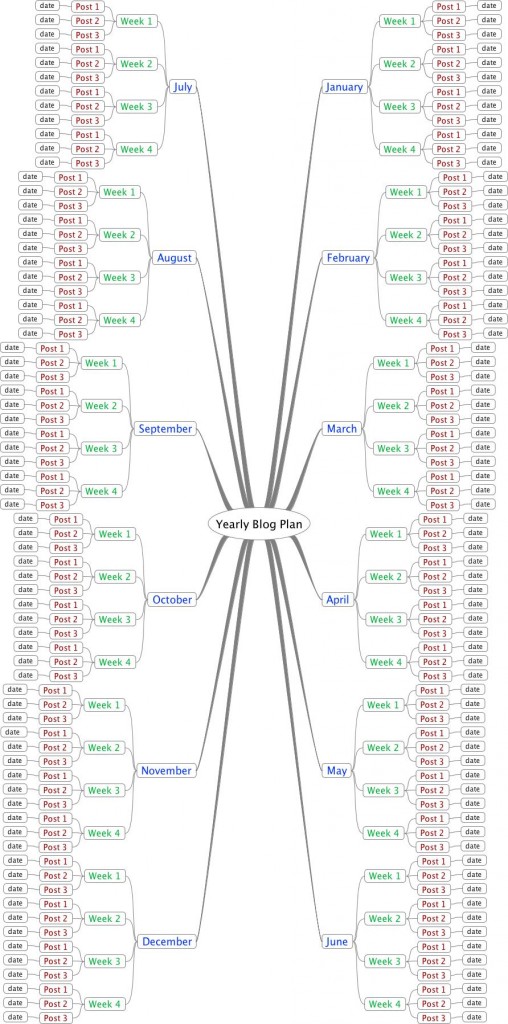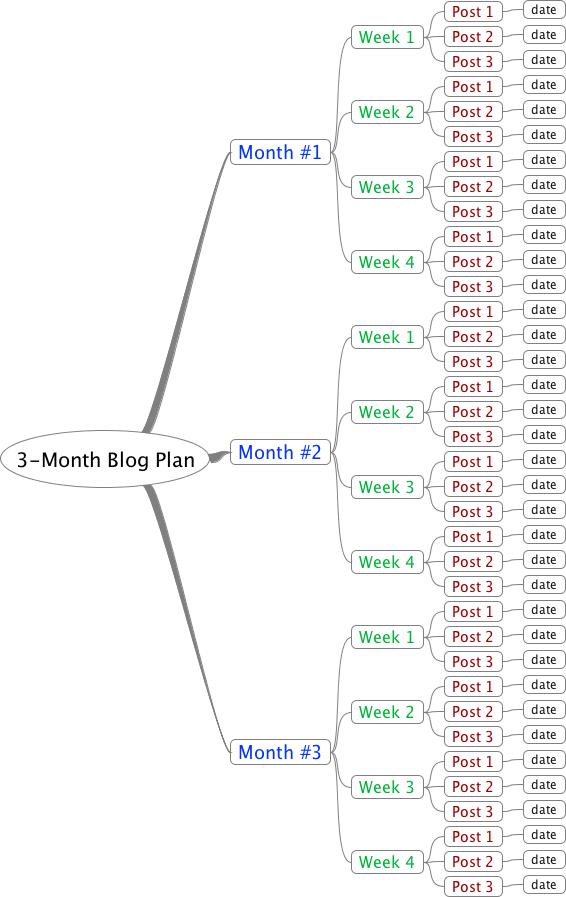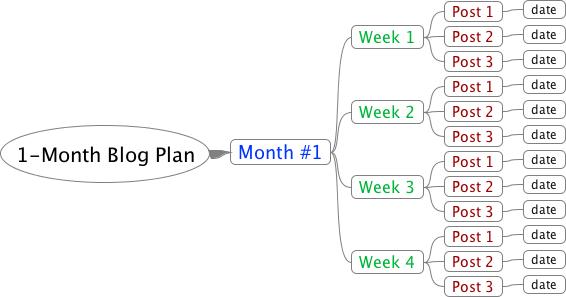 Before you begin blogging a book, you need a blog plan. Even if you don’t think you are going to use your blog to write, publish and promote a book post by post, you need a blog plan. And if you begin your blog with the idea that you might blog a book (or more than one book), you need a strategy for doing so and for blogging regularly and consistently before you begin and after you completed that book. In other words, in every case, you need a blog plan.
Before you begin blogging a book, you need a blog plan. Even if you don’t think you are going to use your blog to write, publish and promote a book post by post, you need a blog plan. And if you begin your blog with the idea that you might blog a book (or more than one book), you need a strategy for doing so and for blogging regularly and consistently before you begin and after you completed that book. In other words, in every case, you need a blog plan.
Let me explain why…
A blog provides a solid foundation for any author’s promotion plan. It serves as an author website as well as a content-marketing machine to help you and your book become discoverable. The more book-related content you produce, the higher the likelihood readers find you and your published work when they conduct an online search. This content and your blog also helps you become known as an expert on your topic.
However, I see too many aspiring and published authors blogging in a scattered manner. They write about whatever topic comes to mind or moves them on a particular day. They assume an author blog provides an opportunity to spout off about whatever is on their minds and that their adoring fans care to read these thoughts. And they might…assuming these writers already have adoring fans.
Other writers blog about an enormous variety of topics. One day they publish a post about politics, the next about a fishing trip, and the next about their book release, a reading, their new hobby or their wedding anniversary dinner.
Both these strategies, if you can call them strategies at all, can prove a large waste a time if you want your blog to serve a promotional purpose or to help you achieve expert status. The key to using an author blog—or any blog for that matter—to attract potential new readers to your book (and to your blog) is found in two words: focus and planning.
Focus
First, and foremost, blog in a focused manner if you want your site to become a promotional tool for your book(s). Choose a few primary topics about which to write. Stick to them. Blog about them often and consistently. Make these the main categories on your site.
As nonfiction writers, you’ll find this strategy fairly easy to apply. The topic of your book gives your blog focus. If you’ve written more than one book, you might have a few topics about which to write; hopefully they correspond in some manner. For instance, maybe you wrote a series of spin-off books that all relate to the subject of gardening. You have a book on gardening in small spaces, a book on container gardening and a book on indoor gardening. You can focus your blog on these three areas. You even can branch off into some additional gardening subjects if you plan to write a new spin-off book. But everything about your blog should shout “gardening in specific types of spaces.” That’s what you blog about day in and day out.
If you also write fiction, staying focused, or even finding a topic upon which to focus, can seem more difficult. However, your novel has a theme, such as overcoming all odds or developing a relationship with yourself. It might include an important issue, such as depression, the Arab/Israeli conflict or child abuse. Maybe you’ve written sequels or several novels, and all of your books share similar themes or topics. If you can find a thread that runs through them, like redemption, politics, self-esteem, 17th Century England, fishing, or even dogs, you’ve got something upon which to focus your blog. You then write about this topic, or related topics consistently in a focused manner.
Planning
That brings us to planning. Utilizing a blog plan provides you with the most effective, and possibly the easiest, way to blog with focus and to do so on a schedule, which means consistently and regularly.
A blog plan consists of a weekly, monthly, quarterly, or yearly list of posts you intend to write. To create such a plan, you take the time to determine post topics in advance as well as the dates when you will publish them.
Blogging with a plan helps you avoid writing about topics that don’t support you and your book becoming discoverable. Instead, you choose topics focused on your book’s topics and themes; these posts, therefore, are filled with targeted keywords. When Google catalogs these posts, it helps your blog rise up in the search-engine-results pages for those search terms. This means anyone searching for something related to those keywords is more likely to find you and your book—and you will have accomplished your goal of book promoting via your blog. (Of course, there are other ways to promote your blog posts as well, such as sharing the URL, title and some information from each post in a status update on social networks.)
Additionally, a blog plan prevents you from staring at your computer screen and wondering what to write about. Your plan dictates your content on any given day because you’ve previously thought it out. You only need to wonder what to write about when it’s time to plan more posts once again.
How to Create a Blog Plan
Creating a blog plan is pretty simple once you’ve chosen a few topics to write about on your author blog. These should be the primary topics, themes or subjects of your book, and you will want to make them into blog categories. Then brainstorm additional related topics for your actual blog posts—lots of posts.
Think of your author blog a long-term endeavor. As long as you plan to write and publish books, you will probably need your author website and your blog. That means you need to develop blog post ideas or topics for many years to come—not just months to come. You can create a month-by-month, quarterly or even yearly blog plan to help you sustain this activity.
If you like to plan far ahead, start with a yearly blog plan. Such a template might look like this:
Or start smaller with a quarterly plan:
If a three-month plan feels a bit too large as you start the process, begin with a one-month plan:
Four Benefits of Author Blog Planning
I usually do a yearly or six-month detailed plan like the first one above. I stick to it pretty closely, although I may deviate if inspiration hits, some newsworthy development requires me to write a post or I find readers are not enjoying my current blog plan. (Check your analytics often to track this.) I find this results in four major benefits.
- This type of planning allows me to create blog post series I can turn into books, effectively blogging a variety of short books (or long books) during the course of a year. It’s easy to plan out three or four blogged books per year in this manner, which means I become a more productive author as well as blogger.
- Planning out the posts for my blogs increased my site traffic. The more carefully I have planned focused content for my blogs and then stuck to that plan, the more my readership has increased. (If I also pay attention to my analytics and use this for future planning, I can increase readership further.)
This proves that when you stay focused and on target, by which I mean blogging about subjects related to your books, your readers respond in a positive manner—and you gain new readers as well. These blog readers represent potential book buyers. - Blog planning also helped me obtain more blog subscribers. The planned posts generated more interest in the blog, and, therefore, more readers who wanted to ensure they didn’t miss any posts. This meant that I had a larger foundation of potential book readers/buyers as well.
- Of course, the more focused material I published on my blog in a consistent manner and on a regular (frequent) schedule, the higher my website rose in the search engine results pages. That made it more discoverable, which made me and my books more easily found by potential book buyers as well.
I suppose eventually I might have achieved these results without a blog plan, but I achieved them much more quickly with the plan.
Have you tried creating a blog plan? What results did you achieve?
High-Performance Writer: Strategies to Help You Produce More Content Quickly, Easily and Consistently
- Do you have trouble finishing your writing projects?
- Do you find it difficult to stick to your blog plan or to a blogging schedule in general?
- Do you plan to write a book during NaNoWriMo or NanNonFiWriMo but worry you won’t complete the challenge?
If so, join me on October 30 when my new course, High-Performance Writer: Strategies to Help You Produce More Content Quickly, Easily and Consistently, begins. Click here to learn more and to register. Space is limited. Reserve your spot!
This post first appeared on Thebookdesigner.com but has been slightly modified for reprint here.
Copyright: nasirkhan / 123RF Stock Photo




Leave a Reply